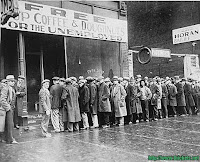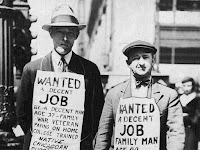In this text, I’m going to analyze one of the poems that has really make me look carefully, to understand its meaning, purpose, and other things that I’ll explain through the text. In this analysis I’ll explain things that hopefully can help you to get what the author is writing about, from the importance of the title, to how the lyric speaker expresses himself through the poem.
If we want to summarize it, this poem is about a man who’s feels alone, depressed, probably alone and dreams of a better present with a woman. He describes her as if she were a flower, and angel direct from heaven. His attitude changes through the poem, and I’ll detailed it as we move on.
Let’s start with the title, ‘And ask ye why these sad tears stream?’ This title is powerful. Because it’s a question, it makes you ask yourself, who’s crying? why? It makes you doubt about what is going to happen in the poem. It’s also essential to understand the poem. If you don’t understand well the title, or if you just read it fast because you don’t think it has a deep meaning, you’re wrong. It’s really hard to understand the poem if you just don’t care about the title. It’s so important, that in the verse number 3, the author writes again the exact same question ‘And ask ye why these sad tears stream?’ It’s simple, if you get the title, you get the poem. You understand the meaning of to whom is he writing, his purpose, the lyric speakers tone, and in the end, you realize that it has a powerful message: Why do we cry for something we didn't do in the past, when we had all the time to do it and we suddenly just lost it, we lost our love of our life, and you’ll only see him or her in your dreams. So we have to take the most of our time for our love ones, or we are just going to remember little things in our dreams.
Picture this, a guy, alone in a room, with nothing left but himself, going crazy because of the loneliness in his life, or at least he believes that. So he dreams, about this girl that she remembers as the only one in the world for him. Beautiful, charming. He knows her like the palm of his hand (that’s what he thinks, because he’s in love). He dreams about her because not long time ago she just left, and suddenly he’s all by himself. I think that that is the big picture.
His attitude changes through the poem, but he just wants to tell us why is he crying, what is really going on in his head. He’s just a big lover. He’s nostalgic through the whole poem, asking why is he crying? And remembers the dream. He then tells it, with so much passion, love, and enthusiasm. and in the end, he feels tired. Blest, but devastated. The attitude never changes, but his tone changes, he empowers the verse when he talks about her lover.
“And ask ye why these sad tears stream?
…
I had a dream - a lovely dream,
of her that in a grave was sleeping.
The nostalgic tone. Remembering something that you loved with sadness.
“The bloom upon her cheek still glowing;”
One of the many beautiful things he says about her. But he compares her to an angel, but she is so far away that he can’t even reach her.
“That waking hour was doubly weary;
And yet I could not envy thee,
Although so blest, yet so dreary.”
He ends like he’s tired of what is going on, because he felt so devastated, and she was blest, because, in the end, she was truly and angel.
We can realize that the nostalgic attitude it’s all over the poem. Although the lyric speaker says many positive things about how her lover’s “new life” in his dreams, he says it like he wishes he could be there, but he just can’t, he can’t reach her. In the poem, the brightness it’s in the course of the poem (“bloom upon her cheek still glowing”, “lambent fire”, “realms of light”, “scene wept in gold”, “Those fairy forms of bliss Elysian”). So she is in another world, were she’s full of light, and purity, like if she were in heaven. I believe that’s why he’s nostalgic, he’s happy for her, but he is stuck in a world where he's having a bad time, not being with her.
In every poem, there are words that can summarize what is the lyric speaker talking about. These are called key words. In my opinion, there are six of them, were you can understand what is he talking about, his feelings, and his attitude. The first one is tears, so somebody is crying for something. Then there’s dream, so that somebody is crying because of a dream. After that there is angel, so he’s dreaming about some type of angel. Blest is the next word, so that angel in the dream felt blest about something that happened. Finally there’s dreary, so the angel that was on the dream felt blest, but that somebody that I said earlier felt dreary (feeling, displaying, or reflecting listlessness or discouragement), so that’s why he was in tears.
The author uses many connotations to drag us into the poem and make us realize what is going on. Here’s an example:
“”
In conclusion, the poem gives us




